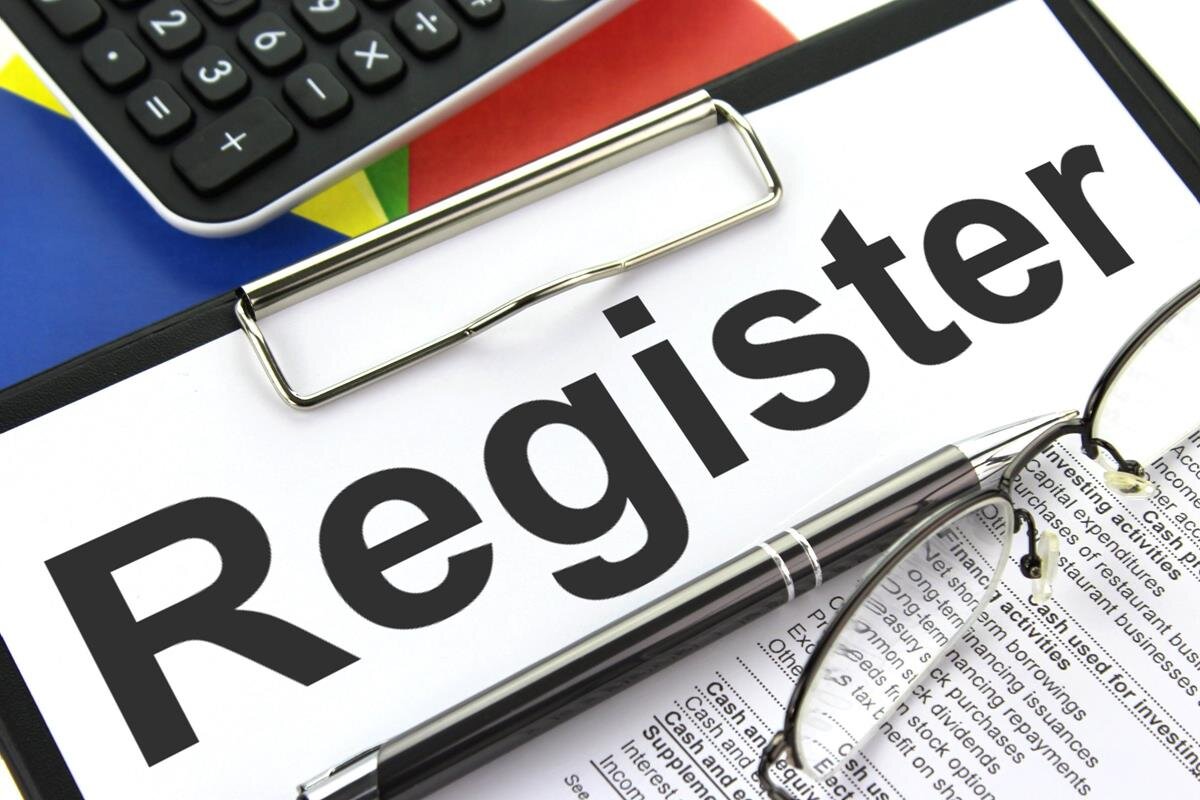Explore Small Business Finance Topics
Discover our most popular topics for Canadian solopreneurs and small business owners. From income tax and GST/HST to QuickBooks tutorials and managing your business finances, these guides are designed to help you move from financial uncertainty to financial confidence.
Click on any topic and scroll down to see related articles.
📑Canadian Income Tax
Guidance on filing and planning your Canadian taxes, from T1 and T2 returns to instalments
📊Managing Business Finances
From cash flow to pricing and metrics — learn to manage your business finances with confidence.
🏢 Canadian Business Structure
Should you incorporate? Stay informed on sole proprietorships, corporations, and registrations.
💰 GST/HST & QST
Understand how to register, file, and maximize input tax credits while avoiding common mistakes.
🧾 Guides and Tutorials
Practical accounting processes like reconciliations, journal entries, and reporting.
📝 Deductions & Expenses
Learn which expenses are CRA deductible and how to track them for maximum tax savings.
Quebec Taxes & Business
QST, Revenu Québec filings, Quebec payroll, and provincial rules every entrepreneur should know.
👤 Paying Yourself
Salary vs dividends, management fees, and how to pay yourself from your corporation or small business.
💻 QuickBooks Online & Tools
Tutorials, guides and time-saving tips for using QuickBooks Online effectively.
🏦 Money & Personal Finance
Personal finance strategies for entrepreneurs, from RRSPs to saving for taxes.

Is the Quick Method of Reporting GST/HST & QST the Right Choice for your Small Business
This post explains how the GST/HST and QST Quick Method works for Canadian self-employed individuals and small businesses, who it’s best suited for, and how to calculate whether it will save you time or money.

Should you register for GST/HST and QST and What it Means to Be Zero Rated
When starting your new Canadian small business or launching into self employment, it is essential to determine whether you are required to register for GST/HST (and QST if you have a started a business in Quebec). The simple answer is that if you anticipate that your annual gross revenues (total sales) are going to exceed $30,000 and your products or services do not qualify as Exempt or Zero rated (explained below) , then you are required to register for GST/HST and collect sales taxes from your Canadian customers and clients.
The $30,000 limit applies to the last 4 quarters of revenues. If you decide not to register for sales tax upon the inception of your business/self employment, then you must monitor your sales revenues over a rolling 4 quarter period and register once you get close to this amount.

How to Use Online Banking to File and Pay Your Business Sales Tax, Payroll DAS and Corporate Tax
The major Canadian banks including RBC,CIBC, TD, BMO and Scotiabank as well as some regional banks such Caisse Desjardins Access D’Affaires conveniently have business tax filings service which replicate the forms that have to be submitted to the government for:
sales tax (GST/HST and QST),
Payroll tax (deductions at source payable to Revenue Canada and Revenue Quebec) and
corporate taxes payable to Revenue Canada (CRA) and Revenue Quebec (RQ).
Business tax instalment payments (including GST-QST instalments)
This means that instead of entering the data on the forms that are available via my business account at CRA and RQ and then going to your bank to make payment, either online or via mail, it can all be done at one time through one form that serves as both tax filing and payment.

Can You Pay Yourself a Management Fee Instead of Salary or Dividends?
As an incorporated business owner in Canada, one of the most important and pervasive questions (certainly from my point of view) you face is how to pay yourself from the corporation.
Generally speaking there are two primary options: salary or dividends.
There is also a third option which is management fees and is often bandied about as an easier alternative.

Essentials for Starting Your Sole Proprietorship
According to Canada Revenue Agency (CRA), the definition of a sole proprietorship is as follows:
A sole proprietorship is an unincorporated business that is owned by one individual. It is the simplest kind of business structure. The owner of a sole proprietorship has sole responsibility for making decisions, receives all the profits, claims all losses, and does not have separate legal status from the business. If you are a sole proprietor, you also assume all the risks of the business. The risks extend even to your personal property and assets.
The simple answer is that if you are selling any type of product or service, on an ongoing basis, and you are not employed by another organization where you receive an employment income slip such as a T4, you essentially have a business. If this business in not incorporated or part of a partnership with one or more individuals, then you are a sole proprietorship.

Why you should register for CRA and RQ My Business Account (and how to do it)
With all data moving to the cloud these days and ubiquitous online access to banking, customer and supplier portals, it makes sense that Revenue Canada (CRA) and Revenue Quebec (RQ) have followed suit. Considerable resources have been spent by the revenue agencies on developing their online portals and encouraging both individual taxpayers and businesses to move the majority of their tax related interactions online (almost every accountant conference has an appearance by a CRA representative talking about the improvements to their online portal and imploring accountants to convince their clients to make the switch). The upfront investment has resulted in significant cost savings for CRA/RQ (postage costs alone have dropped dramatically) while improving accuracy and perhaps most importantly increasing the effectiveness of tax collection efforts. CRA personnel have been able to move away from verifying calculations and manually reviewing tax returns to more value added analysis which has allowed them to identify tax miscreants with higher accuracy.
For both the individual taxpayer and small business owner there are numerous benefits to registering online:

Know Your Small Business Tax Deadlines In 2025
As we approach the new year, it is time to start thinking about a subject near and dear to your heart i.e. taxes (insert appropriate emoji).
Below are the deadlines that all small businesses need to know for 2025.

5 Reasons to Change Your GST/HST/QST Reporting Period and How to Do It
When starting a business the selection of the GST/HST or QST reporting period i.e. how often to file your sales tax returns is often based on new business considerations. Many new business owners are quite enthusiastic and/or orderly and therefore would prefer to file their reports and pay the balance owing on a more regular basis. Conversely owners might be concentrating on the other aspects of running their business and do not want to be bothered with the administrative hassle of regular monthly or quarterly reporting. In this case, you might select the annual reporting option to make the year end reporting requirements as simple as possible. As time passes and your business evolves, you might realize that the option that you initially selected may no longer be the most optimal.

Revenue Canada Interest, Penalties and Payment Arrangements for Income Tax and GST/HST Returns
Whether you are an individual or a business in Canada, taxes are an inescapable part of your existence. All sources of income need to be calculated, tax returns needs to be filed and taxes owing must be paid. This is somewhat facilitated if you are an employee as your employer tends to take care of the majority of remittances. Self-employed individuals, sole proprietorships, partnerships and corporations on the other hand, must account for their income and expenses , determine taxes payable and remit the appropriate amounts. Additionally, businesses are also responsible for other filings including GST/HST and QST and payroll. A lack of knowledge, imperfect accounting systems and the business of running a business sometimes interfere with the timeliness of filings. The Canada Revenue Agency attempts to curb these tardy behaviours by imposing penalties and interest on late filings as follows:
Unincorporat

What Are the Next Steps After Incorporation
Once you have decided to establish a new corporation, there are certain best practices that you should implement to ensure that your corporation runs smoothly right from the beginning. If you are transitioning from a sole proprietorship to a corporation (unincorporated to incorporated entity), there are some additional steps that you need to take. By being proactive, you can turn your mind to your actual business and avoid unpleasant surprises (such as incomprehensible letters from the government and inconvenient deadlines). This article looks at the next steps you need to take after you have incorporated your business.

Top 5 GST/HST Mistakes (and How to Avoid Them)
Whether you have just started your business venture or have a couple of years under your belt, navigating GST/HST can be confusing and stressful. There’s is lots of information on the internet but hard to know if it is trustworthy or comprehensive. Consequently, it's easy to make mistakes that results in time wasted or worse, unnecessary interest, penalties and letters from the government. From registration errors to missed deadlines, you can avoid these mistakes with the right knowledge.
In this post, I'll walk you through the five most frequent GST/HST mistakes I’ve seen (in my fairly extensive experience as a small business accountant) and share some tips on how to avoid them.

What Small Business Owners Need to Know About Income Tax Instalments
Transitioning from being a full time employee to small business ownership or self employment means that you need to cultivate self discipline. You can no longer rely on your employer to take care of business functions that do not relate to your job ,and must take a much more active role in ensuring that you remain on top of your obligations whether it is collecting payments from customers, paying bills or ensuring that you do not run afoul of Revenue Canada. One of these obligations requires that you calculate and pay the full amount of your income taxes when you file your income tax return, rather than having your employer remit deductions from your paycheck directly. In addition to having to calculate and pay your income tax, once you exceed a certain income threshold, you are also required to pay income tax and sales tax instalments.

What Unincorporated Small Business Owners Need to Know about Filing Their Taxes
Being a small business owner comes with challenges, not the least of which is doing your taxes. While most Canadian taxpayers have relatively simple tax returns that can easily be completed using software, small business owners have the additional burden of reporting details relating to their businesses. This can seem onerous, but understanding what needs to be done, and when, can significantly help reduce the stress and ensure that the tax filing process is smooth and straightforward.
One of the types of income on which you pay income taxes is what Revenue Canada (CRA) refers to as “income from self-employment” that is essentially the same as income from a small business. If you do have business income, then you are required to declare your business income on a tax return. As an unincorporated small business owner, this business income is reflected on a separate schedule on your personal tax return. The schedule is called a T2125, which is a “statement of business activities” (discussed below) and at minimum requires that you show any income you earned from a business venture. If you have incurred expenses to earn the business income, you may also deduct these from your gross revenues or sales to arrive at net income from business. Unlike a simple personal tax return with no business income, the information that must be reported on a T2125 is generally not simply provided to you on a tax slip, such as a T4 or T5, but must be compiled and calculated.

Tax Obligations Every Canadian Small Business Should Know
It is therefore prudent for both sole proprietorships and incorporated businesses to keep on top of their tax filings.
In this article I enumerate the tax obligations for most small businesses in Canada along with links to articles to help you understand each one better.

How to Register a Small Business in Quebec
Budding entrepreneurs wanting to setting up a small business (or becoming self employed), either on a full time or part time basis, are often not sure where to start. The process of registering a business in Quebec, depending on your circumstances, can actually be quite straightforward . Below we look at the questions that you need answer to determine your business registration obligations:
